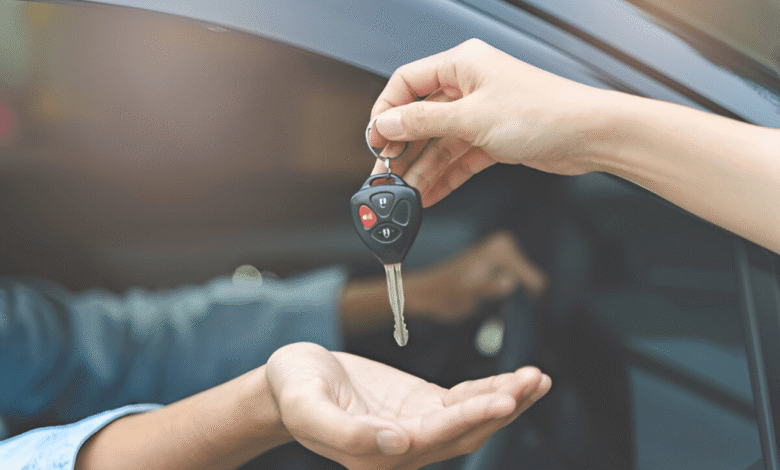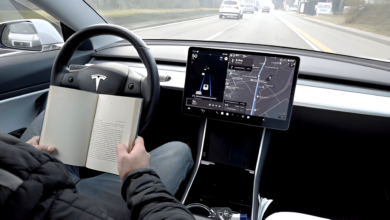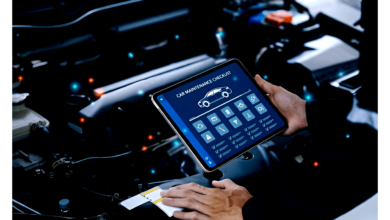How to Buy a Used Car Without Getting Scammed in the USA
Buy used car USA safely. Learn how to avoid scams, check vehicle history, and negotiate the best deal with our expert guide.

Buying a used car in the USA can be a great way to save money, but it also comes with risks if you’re not careful. Scammers often target unsuspecting buyers by selling vehicles with hidden damage, rolled-back odometers, or even stolen titles. To avoid becoming a victim, you need to know how to spot red flags, verify a car’s history, and negotiate safely. Whether you’re buying from a private seller or a dealership, following the right steps can help you secure a reliable vehicle without falling for common scams.
The key to a successful purchase is research, inspection, and due diligence. Many buyers rush into deals because of low prices or high-pressure sales tactics, only to regret it later. By learning how to check a vehicle history report, inspect for mechanical issues, and handle paperwork correctly, you can confidently buy a used car in the USA without fear of being scammed. This guide will walk you through the essential steps to make a smart and secure purchase.
How to Buy a Used Car Without Getting Scammed in the USA
Research the Vehicle’s History
Before even looking at a car, check its vehicle history report using services like Carfax or AutoCheck. These reports reveal critical details such as accident history, title status, and odometer readings. A clean title doesn’t always mean the car is problem-free some sellers hide salvage titles or flood damage, so always verify. If the seller refuses to provide a VIN (Vehicle Identification Number), consider it a red flag. The VIN allows you to check for recalls, previous owners, and whether the car was ever declared a total loss by an insurance company. A stolen car can also be identified through the VIN, protecting you from legal trouble.
Set a Realistic Budget
Determine how much you can afford before shopping. Consider not just the purchase price, but also insurance, taxes, registration fees, and potential repair costs. Getting pre-approved for a loan from your bank can give you better negotiating power and prevent dealers from pushing high-interest financing. Avoid sellers who pressure you into quick decisions or demand cash-only payments. Scammers often use urgency tactics to prevent buyers from conducting proper checks. Stick to your budget and walk away if the deal seems too good to be true it probably is.
Inspect the Car Thoroughly
Never buy a Used Car without a professional inspection. A trusted mechanic can spot hidden issues like engine problems, transmission leaks, or frame damage. If the seller refuses an inspection, it’s a major warning sign. Check for signs of flood damage, such as musty odors, rust under the seats, or water lines in the engine bay. Test all electrical components (windows, lights, AC) and look for odometer fraud by comparing mileage with service records. A well-maintained car should have consistent service history.
Take a Test Drive
A test drive is crucial to assess the car’s performance. Listen for unusual noises, test the brakes, and check how the car handles at different speeds. Pay attention to warning lights on the dashboard, which could indicate underlying issues. Drive on both highways and local roads to evaluate acceleration, steering, and suspension. If the car pulls to one side or vibrates excessively, there may be alignment or tire issues. A smooth ride is a good indicator of a well-maintained vehicle.
Verify Ownership and Title
Ensure the seller is the legal owner by matching their ID with the title documents. A clean title means the car hasn’t been severely damaged or declared a total loss. Watch out for title washing, where scammers move a car between states to hide its salvage history. If buying from a private seller, meet at their home (not a parking lot) to confirm legitimacy. For dealership purchases, verify their reputation through BBB (Better Business Bureau) and online reviews. Avoid curbside dealers who operate without a physical lot.
Negotiate the Price
Use Kelley Blue Book (KBB) or Edmunds to determine the car’s fair market value. If the price is significantly lower, investigate why it could indicate hidden problems. Negotiate based on repairs needed, market trends, and vehicle history. Be prepared to walk away if the seller won’t budge. Many buyers get scammed because they ignore red flags due to excitement over a “great deal.” Patience can save you from a bad purchase.
Complete the Paperwork Correctly
Never sign a contract without reading it fully. Ensure the title is properly transferred, and get a bill of sale that includes the VIN, sale price, and signatures. If financing, understand the loan terms and avoid yo-yo financing scams, where dealers change terms after you drive off. In some states, you may need a notarized title transfer or emissions test. Check your DMV’s requirements to avoid registration issues. Keeping all documents organized will protect you in case of disputes.
Avoid Common Scams
Odometer Rollback Scam
Fraudsters alter the odometer to show lower mileage, making the seem less Used Car. Always cross-check mileage with service records and vehicle history reports. Look for excessive wear on pedals, seats, or steering wheels that don’t match the displayed miles.
Title Washing (Salvage Fraud)
Scammers hide flood or accident damage by re-titling cars in states with lax laws. Verify the title through NMVTIS and watch for “rebuilt” or “salvage” brands. A suspiciously low price often signals a washed title.
Curbstoning
Unlicensed dealers pose as private sellers to avoid liability. Confirm ownership by matching the seller’s ID to the title and registration. Walk away if they refuse to meet at their home or provide paperwork.
Yo-Yo Financing Scam
Dealers “approve” your loan, then call you back days later claiming it fell through. Get pre-approved financing from your bank and read all contracts thoroughly. Never drive off without signed, finalized loan documents.
VIN Cloning
Thieves copy VINs from legally-owned cars to disguise stolen vehicles. Check for mismatched VINs on the dashboard, door frame, and engine. Run the VIN through NICB’s stolen vehicle database before buying.
“As-Is” Scam
Sellers use “as-is” disclaimers to sell defective Used Car with no recourse. Always get a pre-purchase inspection, even for “as-is” sales. State lemon laws may still offer protection despite the disclaimer.
Escrow Payment Scam
Fake sellers insist on using a fraudulent escrow service for “security.” Only use reputable escrow companies and never wire money before verifying the car exists. Meet in person to inspect before any payment.
Airbag Fraud
Some sellers replace deployed airbags with cheap fakes or empty compartments. Have a mechanic check airbag functionality and look for mismatched dashboard colors or loose panels around airbag compartments.
Undisclosed Accident Damage
Sellers hide past collisions that weren’t reported to insurance. Look for uneven paint, misaligned panels, or fresh bodywork. A CARFAX report helps, but also get a professional inspection.
Test Drive Theft
Scammers steal your trade-in keys or personal items during test drives. Always go with the seller during the test drive and keep valuables secure. Verify their identity before handing over your keys.
Read More: How to Prepare for the SATs in 3 Months
Conclusion
Buying a used car in the USA can be a smooth and rewarding experience when you take the right precautions. By thoroughly researching the vehicle’s history, getting a professional inspection, and carefully reviewing all paperwork, you significantly reduce your risk of falling victim to scams. Remember, if a deal seems too good to be true, it probably is always trust your instincts and walk away from anything that feels suspicious.
Ultimately, the key to success is patience and due diligence. Whether purchasing from a dealership or a private seller, taking these extra steps ensures you drive away with a reliable vehicle at a fair price. With the right approach, you can confidently buy a used car in the USA without fear of being scammed, giving you peace of mind for years to come. Happy car hunting.
FAQs
How can I check if a used car has been in an accident?
Run a vehicle history report using the VIN through services like Carfax or AutoCheck to see accident records.
Should I buy a used car from a private seller or a dealership?
Dealerships offer more protections like warranties, but private sellers may have lower prices. Always verify the seller’s credibility.
What are the red flags when buying a used car?
Avoid cars with no title, odometer discrepancies, refusal of inspection, or sellers pushing for quick cash deals.
Is it safe to buy a used car online?
Yes, but only through trusted platforms like Carvana or AutoTrader, and always inspect the Used Car before paying.
Can I return a used car if I find problems later?
Most used car sales are final, but some dealerships offer limited warranties. Always get an inspection before buying.







3 Comments